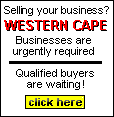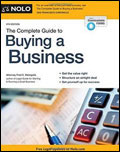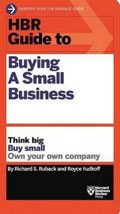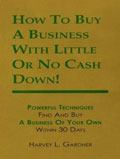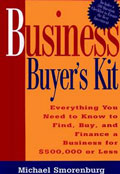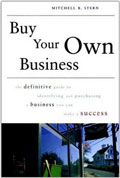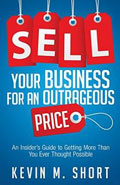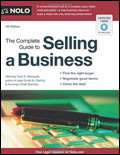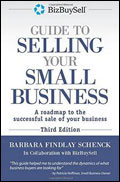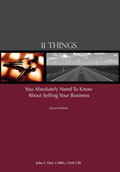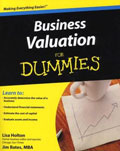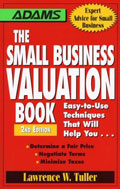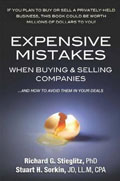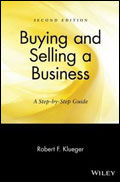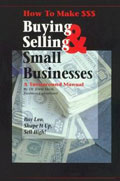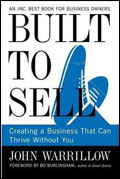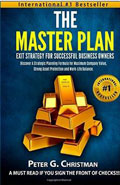
How To Prepare Your Business
for a Future Sale
Why you need to plan in advance.
Draw up a plan.
Start constructing your offer document.
Keep it confidential.
Plan yourself out of the business.
The Financials.
Assemble the documentation.
Premises and leases.
Secure the staff.
Asset stripping and paring down.
Review and improve financial controls.
Business operations.
The customer base.
Vision, mission and goals.
Sell the forecast.
Assemble the professionals.
Clear all legal conditions.
Pretty up and tidy up.
Start identifying the buyers.
| Why you need to plan in advance. |
Preparing a business for sale is quite different to the actual selling of the business. There are many aspects of the sale preparation which take can a considerable time to organise and put in place. And these issues will have a considerable effect on the price you realise and the time that it takes to find a suitable buyer.
Many businesses come to market in an unoptimised condition which makes the sale difficult and protracted. The worst situation is obviously where the owner has died suddenly or is unable to oversee the sale. Many others are up for sale once they are distressed due to market conditions, loss of key staff or customers, increasing competition or technology issues. Or you just wake up one day figuring you don't want to do this anymore or suddenly crave retirement. This makes for a poor price if a sale is even achieved. You want to be in prime condition and controlling eager buyers to secure the best possible price and a clean sale.
You also need to be committed to the sale in that no seller's remorse issues or "cold feet" reversals can take place. For small business owners especially, this can be a major life changing experience and you need to be emotionally focussed to carry the project through.
Many businesses put up for sale never sell, and are either withdrawn by the owner or rejected by the brokers. They generally have failed to address several of the issues detailed in this document and this could have been avoided with some thoughtful preparation.
Once you have made the decision to sell; you need to prepare. This process could take a year or more - and you need to work at it constantly. Once it is completed you can look at starting the selling process. The preparation mode will generally make the business leaner and stronger and with each passing month you will be better placed to sell if you suddenly have to.
| Draw up a plan. |
This document concerns itself with the longer term aspects of preparing a business for sale. You should also read through How To Sell Your Business as there may be issues there which need earlier preparation in your case. But essentially this is a loosely structured guide to the first step in the sale process. It's probably best to draw up a rough checklist as you read to see what needs to get done.
Do you have a Succession Plan for yourself in your business.? In other words, if you were to die right now, how would your executor deal with the continued existance and/or disposal of your business. You probably constitute most of the instututional memory of the business and your counsel would be invaluable in preparing, identifying buyers and handling the sale. But you are now somewhat incommunicado - and the business and your estate will suffer accordingly. A succession plan will address many of the issues that you will face in the sale preparation and this would be an ideal opportunity to get both done.
| Start constructing your offer document. |
It is suggested that you need two offer documents.
The first is a Primary Offer which details:
• The company's market operations
• A brief company history
• A breakdown of income streams
• A summary of market conditions and expectations
• The reason for the sale
• The pricing and conditions of sale
The primary offer can be shown to interested parties (sometimes without the need for a non-disclosure agreement) and it allows you to respond quickly to genuine buyers.
The Detailed Offer is used when someone appears to be a serious buyer who now wants to get down to the nitty gritty and evaluate the offer in detail leading to the start of a due diligence. A confidentiality agreement will usually be required at this stage. See Data Info Pack for more detail.
The Detailed Offer would require many components that will take time to assemble. When the time for the sale process arrives you will need this document to brief your team - probably a broker, lawyer and accountant - and it will prove invaluable at that time in ensuring everyone understands the business and it will prevent another unexpected delay.
This will include: detailed financials; manuals for operating and policies; intellectual property listed with protection, patents and licensing; succession plans; goals, mission and business vision.
| Keep it confidential. |
You will want as few people as possible to know that the business is up for sale, especially at this early stage. It may not be as easy to conceal the fact once the business is on the market, but at this stage there is risk in employees, competitors, suppliers, customers and bankers knowing that you are planning to sell. Even your professional advisors, who understand the need for confidentiality, need to be reminded of the requirement. You do not want to damage your business at the very time that you are trying to show stability and growth.
| Plan yourself out of the business. |
When the company eventually sells - the big difference is that you will no longer be there. This will be critically evident to the buyer at all times and all risk will be measured against this variable. So they want to know that the existing staff and management have the capacity and institutional memory to be able to operate comfortably in your permanent absense. This continuity issue should be covered in the detailed offer and referred to whenever relevant - especially where customer and supplier relationships are concerned.
Many smaller businesses adjust for owner and family requirements for tax and other efficiencies and these should be removed from the financial records as early as possible. This improves the ethical profile as well as strengthening profitability which is an objective in the financial sale strategy. The increased tax load will be well offset by a higher sale price and earlier closure.
| The Financials. |
It is pointless to misrepresent the financial data as this will only derail the sale later and damage your credibility. You MUST have justifiable financial statements and your accountant should assist with extracting all the key metrics and reports. If you are a close corporation with a technical accountant then get your accounts audited by a chartered accountant. This is where you need authentication.
It is a roughly accepted that more than 50% of new businesses fail in their first three years of trading, so if you have been established for less than 4 years you need to show strong and sustained growth with sufficient cashflows. Ideally you should be able to present 4 or 5 years of healthy financial statements. If the growth patterns in income and profits are not evident then you need to work out how you can change that in the year ahead.
You can also cut expenses and costs to increase profitability to show a current upward trend to reassure the buyer.
The most common business price method (even if you didn't use it) is a multiple of profit - say 3 year's earnings. So if you reinvested profits into marketing or manufacturing equipment that would boost sales (and therefore profits and the calculated price) instead of using the profit to repay debt obligations. This is, however, not necessarily sustainable.
| Assemble the documentation. |
There are a number of documents that will be required for prospective buyers. These include......
Financial Results
• Audited Balance sheets
(preferably 5 years, minimum 3 years plus this YTD)
• Profit and Loss Statements (minimum 3 years)
• Tax Returns and Assessments (minimum 3 years)
Financial Planning
• Last 2 Budgets plus current year with YTD achieved
• Schedule of Business Loans Made & Received
Assets
• Listing of all assets with purchased value, present book value and current market value
• Listing of all inventory with purchased value, present book value and current market value
Leases
• Lease agreements for property rentals
• Lease agreements for equipment
Licencing and Intellectual Property
• Licencee and Franchise agreements
• Business operating licences
• Trademark and Patent documents
• Incorporation documents (CK, Company registration and CIPRO)
• Ownership of internet domains and registrar access codes
Labour Legislation
• Employee contracts and letters of appointment
• Trade Union and LAC agreements
• Statements for UIF and Workmens Compensation
Property
• Title documents
• Building certification (pest control, glass safety, approved plans)
• Business use zoning documentation
Customers
• Contracts with customers
• Customer Service Level Agreements (SLA's in the services industries)
Suppliers
• Contracts with suppliers
• Contingency plans in the even of supplier issues
.
Manuals and Operating Guides
• General operations
• Business policies
Marketing material
• Logos and branding artwork
• Listings of archived productions. Newsletters, brochures, etc
• Market analysis and projections
• Competitor analysis with SWOT studies
Note on Franchise Agreements:
The agreement with the franchisor needs to be studied to see what conditions are attached to disposal of the business. The franchisor may have a right of first refusal or you may be obliged to sell it back to the franchisor at an agreed escalation price. A buyer presented by yourself may need the approval of the franchisor and may be required to be trained by the franchisor. Some franchises will require a new owner to pay a once off hefty franchise joining fee.
| Premises and leases. |
The tenure, or security of the lease, can threaten the purchaser's operations. As a rule of thumb, the buyer would want to have a lease in place for long enough to enable the business profits to pay back the purchase price and cover the interest foregone on the capital used for the purchase. But if the business expanded or shrunk the buyer would also want some flexibility to move the business premises. So, ideally, there is a requirement for the option to extend the lease for long enough to meet the payback requirement and give the option to exit at renewal time as well.
Some innovative leases (especially in shopping malls) are linked to turnover to help deal with the risk of variable trading conditions. The rental increase could be capped by turnover increases and zeroed if turnover decreases.
There are general lease related questions that should be answered in the detailed sales pack documentation:
• Length of past lease and next expiry with renewal options.
• History of past lease levels
• Approved use of the premises and prohibited uses
• Extent of allowed structural changes, improvements and shopfitting
| Secure the staff. |
Your key staff are critical assets to the business and a buyer will want assurances that your exit will not prompt others to leave. Even worse, you do not want resignations before the sale process begins.
You will need to develop a contingency plan whereby you can cross train other employees to take up the gap or figure out where you could hire replacement staff pretrained for key positions. It may be worthwhile to present early raises to improve employee contentment and head off job hopping.
| Asset stripping and paring down. |
Consider selling off underutilised or idle assets. This will improve current profits as well as bolstering the cashflow and working capital reserve. All non-revenue generating assets can be considered for this.
| Review and improve financial controls. |
Businesses run by an owner who developed the systems and has hands-on control sometimes means there is less need for automated and tight financial controls. A buyer would feel more secure if the accounting systems can present good and reliable financial reports on demand. Monitoring debtors, supplier payments and forecasting cashflow requirements are important functions that will appeal to a buyer.
| Business operations. |
The buyer would want documentation that can be referred to for guidance in the day to day running of the business. This would include schedules or regular payments and the methodologies used all aspects of operations. The same manuals can be used by staff as induction training material.
These would include.....
- Operations Manuals
- HR and IR Policies
| The customer base. |
A buyer would not want to see 60% of all sales exposed to a single customer. Much rather 15% each exposed to four customers. A wide customer base reduces the risk to turnover. The fewer the total number of customers, the more the need for contracted arrangements. Contracts in place at the time of the current owner leaving also means that customers cannot leave as the seller leaves.
| Vision, mission and goals. |
As an owner you will have conceptualised and thought of what the business could become. No matter how far along that path one is, there is always that objective to shoot for.
This should somehow be built into the mission/objective/vision for the company. This target needs to be communicated to the prospective buyer.
| Sell the forecast. |
Your financial budget should be in alignment with the forecast of trading conditions and expected results for the year ahead, and ideally even for the next. These must be realistic and hopefully achievable. The buyer needs to believe that they can be implemented. The forecast must also align with the vision and goals.
| Assemble the professionals. |
A good lawyer, well versed in contract law and agreements, will be needed for at least the MoU and sale agreement.
Your own auditors will assist with assembling financials and looking for the most tax efficient methodologies. The buyer's auditors would be concerned with due diligence and it is sometimes more effective to have them deal with your auditors.
Whether or not to have an experienced and recommended business broker handling the sale is another often asked question. While a commission (or fixed fee) cost would be incurred, this is nearly always offset by the gains from a better price, a quicker sale, the benefits of counsel from experience, buyer screening and negotiating advice. They know where to advertise particular businesses and have networks of perennial buyers and collaborating brokers. They can direct buyers to financing sources and have a deep vested interest in making a sale happen due to the commission imperative.
The lawyer and the broker are for a later time. Your accountant's assistance will be needed up front as you restructure some operations and procedures to get your financial accounts looking more attractive.
| Clear all legal conditions. |
You don't want to have a legal deal breaker popping up during the sale process which sinks everything. So here's a checklist to make sure there items are taken care of. Look at them now as some may take some time to sort out. The buyer's due diligence process will probably check these items and this will effect pricing adjustments and maybe the deal itself.
• Do you have clear ownership of all major and critical assets?
• Are all licenses current and valid? Business operating, product manufacture and representation.
• Are property and critical equipment leases all long-term and transferable leases?
• Is the property correctly zoned for the business activities?
• Make sure there are no liens or claims outstanding.
Are property and critical equipment leases all long-term and transferable leases?
This could include product and performance claims.
Are property and critical equipment leases all long-term and transferable leases?
Is the business responsible for any sureties or guarantees?
Are property and critical equipment leases all long-term and transferable leases?
Are there any known contingent liabilities which could manifest?
• This could include possible litigation as well as staff labour claims.
| Pretty up and tidy up. |
Just as you spend some time and effort in tarting up your house for a residential property sale, so you should be doing the same for the business premises. During the preparation period you could spend (remember you are trying to reduce expenses as well in this period) on painting, minor redecorating and reconditioning office equipment. The buyer will be working with your records so make sure your filing system is organised and presentable, and that it all works. Some new carpeting and curtains and sorting out those little things that have been put off forever will convey a sense of organisation and efficiency. Upgrade your lumbering ADSL internet feed to fibre optic and plug in some VOIP phones. Visibly embrace new technologies. This all helps the buyer to form the impression that you are current in the things that make the business more efficient.
| Start identifying the buyers. |
This is considered a term preparation task as it is over time that you think of potential buyers. When you do go to market you want to be able to offer to all possible parties to quickly arrive at the serious potential buyers.
One obvious source is general advertising and the informal marketing done by your auditors through their client base and network of accounting firms. Then there are your competitors, sometimes your suppliers and very often there will be a buyer who is currently an employee. All these buyers would be those who have experience of, and see the value in, the business.
But there are also buyers who are not after the revenue, and who see synergies in your customers, market position, technologies and intellectual property, licences and patents, and maybe even your staff. Your business can build on their business and can have a significant effect on their current income. If you identify them now then you can make sure that you keep (and maybe improve upon) the factors that will make your business attractive to them. Use this time to get a patent or trademark registered and if you have critical clients then see if you can contract their sales, even if you have to offer deep discounts.
Related Resources :
Buying a BusinessHow to Buy a Business
Restaurant Internet or Online Retail Manufacturing Service
Wholesale / Distribution Service Station / Convenience Store Liquors
Conducting a Due Diligence on Buying a Business
Selling a Business
Preparing Your Business for a Future Sale
How to Sell Your Business
Determining a Realistic Selling Price for Your Business
General Topics
Financing Sources for your Business Purchase
How to Choose a Business Partner

|
Anything we left out, stuff you don't agree with.? Good article, bad article.? Please give us your comments and suggestions. |


